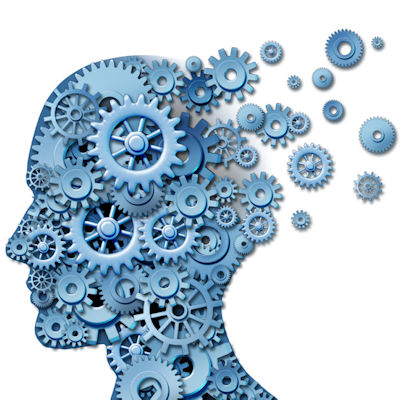August 22, 2022 -- A new study from University of Illinois Chicago researchers shows that boosting neurogenesis, the process by which new neurons are formed in the brain, increases the number of newly formed neurons involved in storing and retrieving memories in the hippocampus of mice with Alzheimer’s disease (AD).
Their study, published August 19 in the Journal of Experimental Medicine, suggests that boosting neuron production could be a viable strategy to treat AD patients and that AD-linked genes play a role in hippocampal memory formation.
Previous studies have shown that neurogenesis is impaired in both Alzheimer's patients and laboratory mice carrying genetic mutations linked to AD, particularly in the brain's hippocampus which is critical for memory acquisition and retrieval.
"Our study is the first to show that impairments in hippocampal neurogenesis play a role in the memory deficits associated with AD by decreasing the availability of immature neurons for memory formation," Orly Lazarov, PhD, professor in the department of anatomy and cell biology at the University of Illinois Chicago College of Medicine, said in a statement. "Taken together, our results suggest that augmenting neurogenesis may be of therapeutic value in AD patients."
The researchers boosted neurogenesis in AD mice by genetically enhancing the survival of neuronal stem cells and deleted Bax, a gene that plays a major role in neuronal stem cell death, leading to the maturation of more new neurons. By boosting the production of new neurons, the performance of mice was restored as measured in two different tests measuring spatial recognition and contextual memory.
The team fluorescently labelled neurons activated during memory acquisition and retrieval, allowing them to determine that in the brains of healthy mice the neural circuits involved in storing memories include many newly formed neurons in addition to older, more mature neurons. While these memory-stowing circuits contain fewer new neurons in AD mice, the integration of newly formed neurons was restored when neurogenesis was boosted.
Additional analyses of the neurons forming the memory-storing circuits revealed that boosting neurogenesis also increases the number of dendritic spines -- structures in synapses known to be critical for memory formation -- and restores a normal pattern of neuronal gene expression.
Researchers confirmed the importance of newly formed neurons for memory formation by specifically inactivating them in the brains of AD mice, thereby reversing the benefits of boosting neurogenesis and preventing any improvement in memory.
"However, the role of newly formed neurons in memory formation, and whether defects in neurogenesis contribute to the cognitive impairments associated with AD, is unclear," Lazarov said.
Copyright © 2022 scienceboard.net







